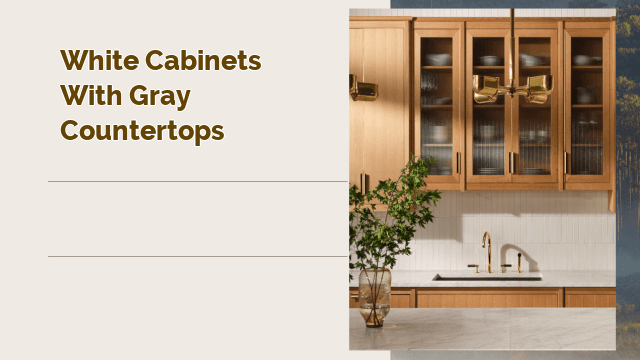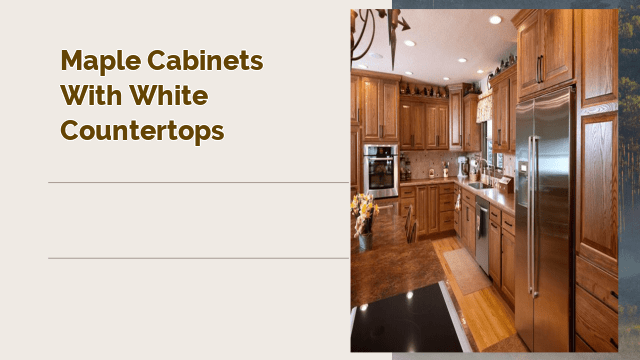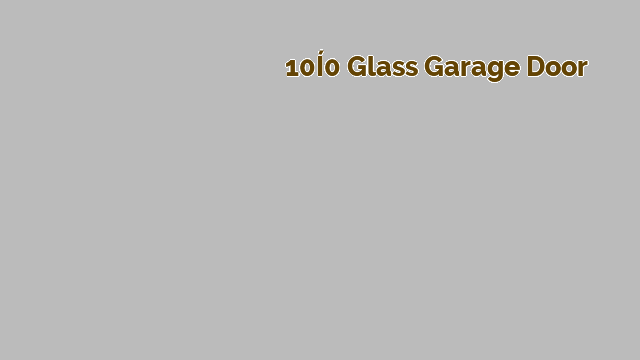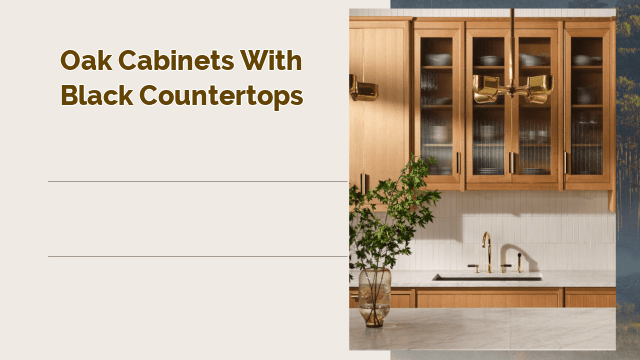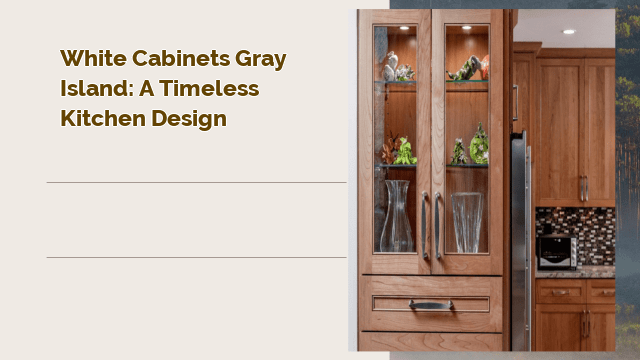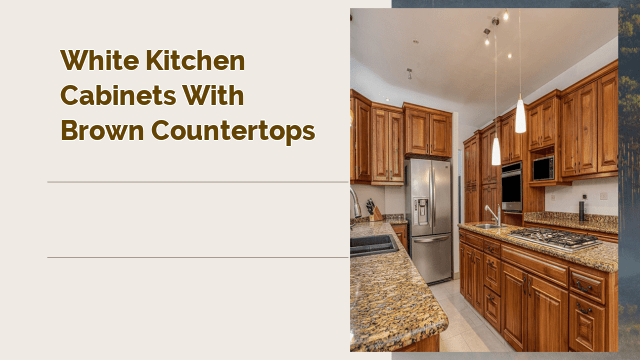Eco-friendly Bamboo Cabinets For Modern Kitchens

Learn about their eco-friendly benefits, durability, design versatility, and how they elevate modern kitchen aesthetics. Explore installation, care, and cost considerations.
Keywords: bamboo kitchen cabinets, eco-friendly kitchen cabinets, sustainable kitchen cabinets, modern kitchen cabinets, bamboo furniture, green kitchen design, eco-friendly home renovation, kitchen cabinet materials, durable kitchen cabinets, sustainable living, environmentally friendly kitchen, kitchen design ideas, bamboo cabinet cost, bamboo cabinet installation, bamboo cabinet care
Introduction:
The modern kitchen is evolving beyond mere functionality. Today’s homeowners seek spaces that reflect their values, prioritizing sustainability and mindful consumption. This shift has fueled a surge in demand for eco-friendly materials, and among them, bamboo kitchen cabinets stand out as a compelling choice. Combining exceptional strength, stunning aesthetics, and a remarkably low environmental impact, bamboo offers a compelling alternative to traditional wood cabinets, elevating the modern kitchen to new levels of sophistication and sustainability. This comprehensive guide delves into the world of bamboo kitchen cabinets, exploring their benefits, considerations, and place within the contemporary design landscape.
Table of Content
The Environmental Advantages of Bamboo Kitchen Cabinets:
Bamboo’s eco-friendly credentials are undeniable. Unlike hardwoods that require decades to mature, bamboo is a rapidly renewable resource. It’s a grass, not a tree, and can reach maturity in just 3-5 years, meaning it can be harvested sustainably without depleting forests. This rapid growth cycle makes bamboo a significantly more sustainable option compared to traditional hardwoods like oak or cherry, which often contribute to deforestation and habitat loss.
Furthermore, bamboo cultivation requires minimal pesticides and fertilizers, reducing the environmental burden associated with agricultural practices. Its inherent strength and density mean less material is needed to achieve the same structural integrity as hardwood cabinets, further minimizing resource consumption. This contributes to a smaller carbon footprint, aligning perfectly with the growing emphasis on reducing greenhouse gas emissions and promoting carbon sequestration.
Related Article Eco-friendly bamboo cabinets for modern kitchens
- natural cherry cherry cabinets with quartz countertops
- Backsplash Ideas for Grey Cabinets
- Modern Cabinet Crown Molding
- Black Lower Cabinets White Uppers: A Timeless Kitchen Trend
- dark lower cabinets light upper
Durability and Strength: A Surprisingly Robust Choice:
While its rapid growth might suggest fragility, bamboo boasts impressive strength and durability. In fact, its tensile strength surpasses that of many hardwoods, making it an exceptionally robust choice for kitchen cabinets, which endure daily wear and tear. Properly treated and constructed bamboo cabinets can withstand moisture, temperature fluctuations, and the rigors of everyday kitchen use, offering longevity comparable to, or even exceeding, that of traditional wood cabinets.
The inherent strength of bamboo also allows for innovative designs. Thinner panels can be used without compromising structural integrity, leading to lighter cabinets that are easier to install and handle. This also opens up possibilities for intricate detailing and more contemporary designs.
Aesthetic Versatility: Blending Modernity and Nature:
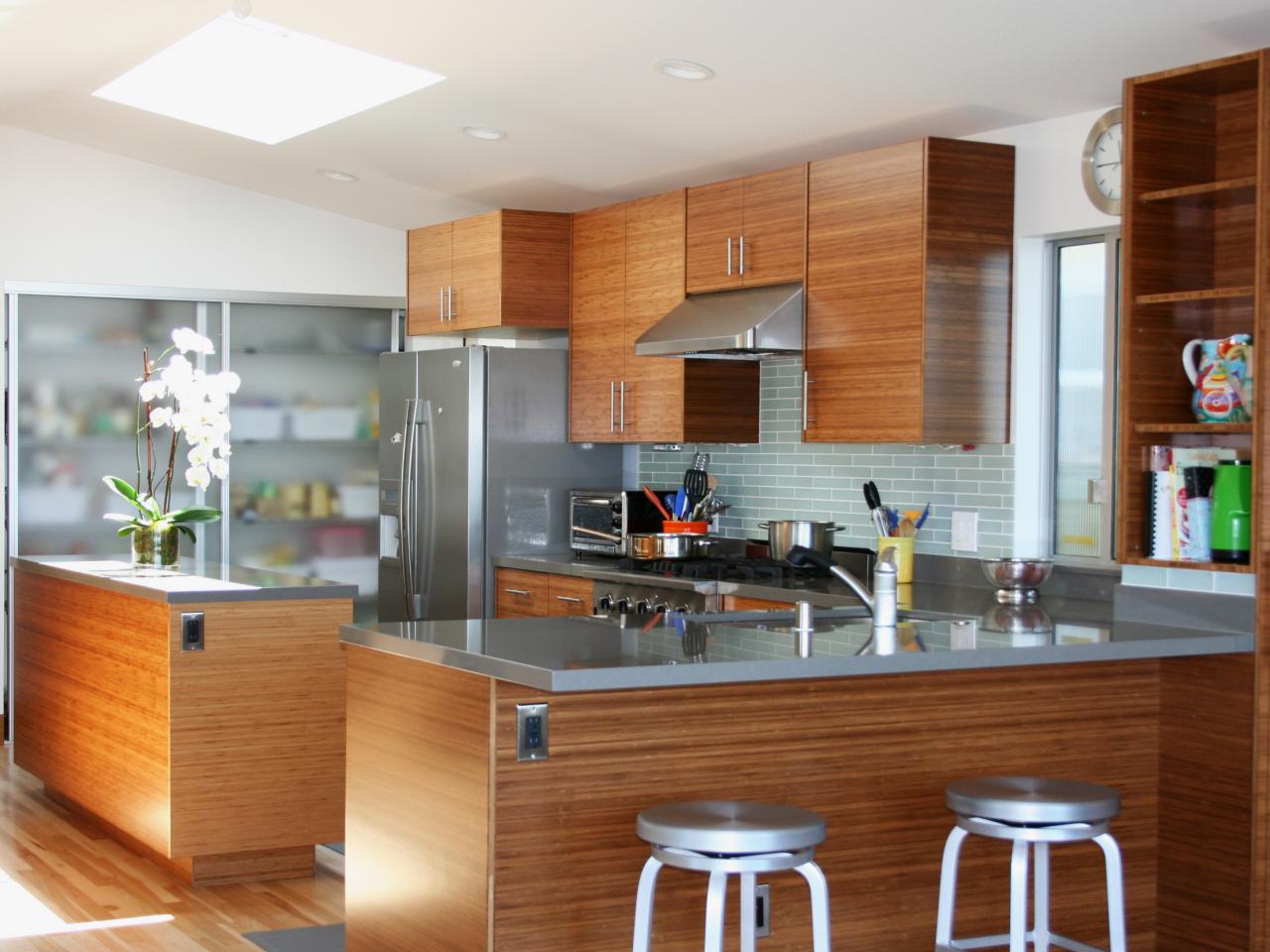
Bamboo’s natural beauty complements a wide range of modern kitchen styles. Its warm, golden tones inject a sense of organic warmth, contrasting beautifully with sleek stainless steel appliances and minimalist countertops. The natural grain patterns offer a unique visual texture, adding depth and character to the kitchen space. Whether you prefer a rustic farmhouse aesthetic, a minimalist contemporary look, or a transitional blend of styles, bamboo cabinets can seamlessly integrate into your design vision.
The versatility extends beyond color and grain. Bamboo can be finished in various ways to achieve different aesthetic effects. From a natural, unvarnished finish that showcases the wood’s inherent beauty to painted finishes that allow for bolder color choices, the possibilities are virtually limitless. This adaptability makes bamboo cabinets a highly versatile option for modern kitchens of all sizes and styles.
Design Options and Customization:
The rise in popularity of bamboo cabinets has led to increased customization options. Homeowners can now choose from a variety of styles, including shaker, slab, raised panel, and more. The flexibility in design extends to cabinet hardware, countertop pairings, and overall kitchen layout. Whether you envision sleek handleless cabinets or traditional knobs, the versatility of bamboo allows for a personalized design that perfectly reflects your style and preferences.
Furthermore, many manufacturers offer bespoke options, allowing you to customize cabinet dimensions, configurations, and even incorporate unique design elements to create truly one-of-a-kind kitchen cabinets. This level of customization is crucial for achieving a perfectly integrated and aesthetically pleasing kitchen space.

Installation and Maintenance: Practical Considerations:
Installing bamboo cabinets is similar to installing other types of cabinets. While you can certainly undertake a DIY installation, especially for simpler designs, professional installation is often recommended, particularly for complex layouts or intricate designs. A professional installer can ensure proper alignment, secure mounting, and a flawless finish.
Maintenance is relatively straightforward. Regular dusting and occasional cleaning with a damp cloth are usually sufficient. Avoid using harsh chemicals or abrasive cleaners, as these can damage the finish. Periodic application of a suitable wood conditioner can help maintain the beauty and longevity of your bamboo cabinets. The relative resistance to moisture also reduces the need for extensive maintenance compared to some other wood types.
Cost Comparison: Balancing Value and Sustainability:
While the initial cost of bamboo cabinets might be slightly higher than some mass-produced melamine or particleboard alternatives, it’s crucial to consider the long-term value. Bamboo’s durability and longevity translate into lower replacement costs over the lifespan of the cabinets. Furthermore, the environmental benefits contribute to a greater sense of value, aligning with the growing consumer preference for sustainable and ethically sourced products.
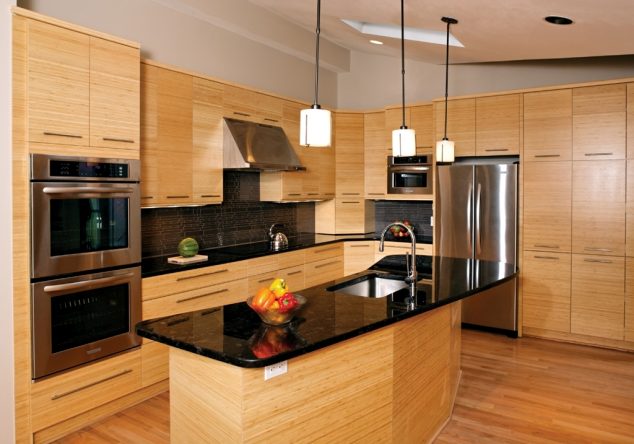
The cost can vary depending on factors such as the quality of bamboo, the complexity of the design, the level of customization, and the cost of installation. However, when considering the overall cost-benefit ratio, including durability, sustainability, and aesthetic appeal, bamboo cabinets often represent a sound investment.
Choosing the Right Bamboo Cabinets: A Buyer’s Guide:
When purchasing bamboo kitchen cabinets, several factors are crucial to consider:
- Bamboo Type: Different bamboo species have varying densities and strengths. Ensure you’re choosing a species known for its durability and suitability for cabinetry.
- Construction Quality: Examine the cabinet construction carefully. Look for solid bamboo construction, strong joinery, and a smooth, even finish.
- Finish and Treatment: The finish should be durable and protect the bamboo from moisture and damage. Inquire about the type of finish used and its resistance to scratches and stains.
- Manufacturer Reputation: Choose a reputable manufacturer with a proven track record of producing high-quality bamboo cabinets. Read reviews and check for certifications that guarantee sustainability and responsible sourcing.
- Warranty: A good warranty indicates the manufacturer’s confidence in the quality and durability of their products.
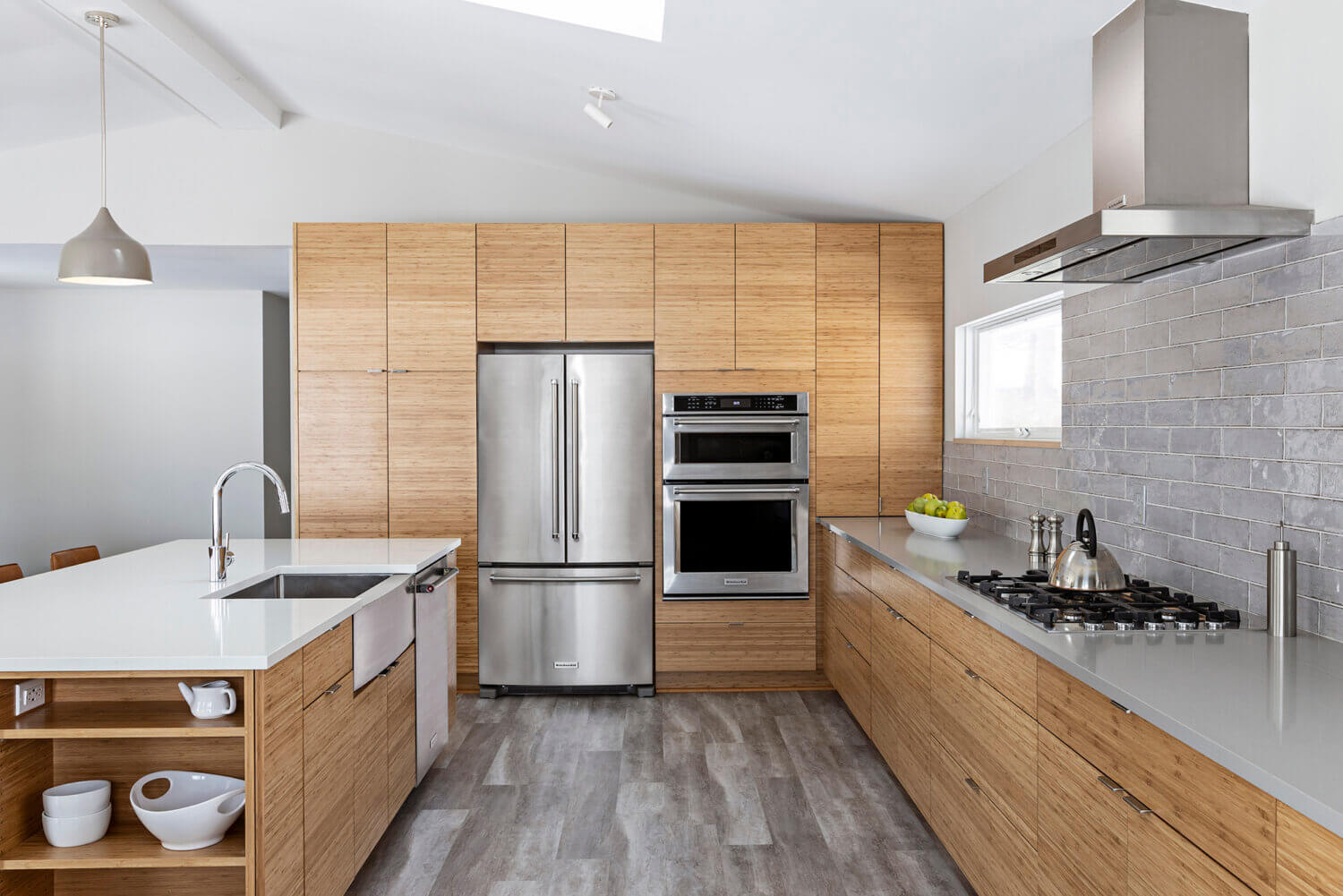
Bamboo Cabinets and the Future of Kitchen Design:
Bamboo kitchen cabinets represent a significant step forward in sustainable kitchen design. They combine the beauty and functionality of traditional wood cabinets with the significant environmental advantages of a rapidly renewable resource. As consumer awareness of environmental issues continues to grow, the demand for eco-friendly options like bamboo cabinets is only expected to increase. Their durability, aesthetic versatility, and relatively low environmental impact position them as a key player in shaping the future of modern kitchen design, offering a stylish and sustainable choice for homeowners who value both beauty and environmental responsibility. The integration of bamboo into kitchen design signifies a broader shift towards mindful consumption and a commitment to creating more sustainable and ethically conscious living spaces. This trend is not just a fleeting fad; it’s a reflection of a growing societal awareness and a desire to create homes that are both beautiful and environmentally responsible.

